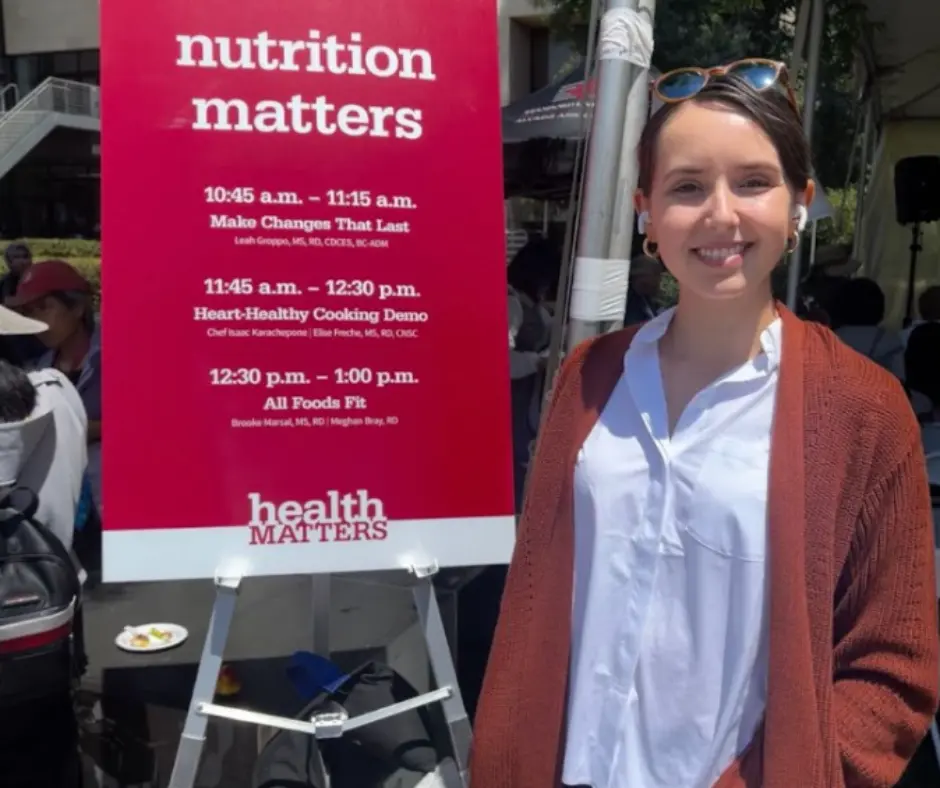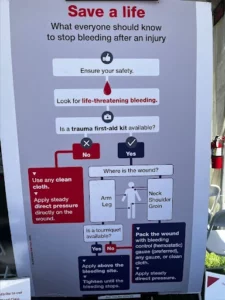
Stanford hosted a “Health Matters” Conference this year for the general public, and I was curious to pop by and see what insights could be gained. While much of the information and activities were geared towards a lay audience, including, fundamental nutrition, healthy cooking and CPR training, I found several pearls and resources worth sharing. You can see the videos of the talks at the link above, and attend the conference next year on May 17, 2025, at Stanford. Here is a summary of some highlights around research studies with several current benefits, and how to manage bleeding in an emergency.
Opportunities to Participate in Cutting Edge Therapies and Forward Research
Stanford is an international hub for research, and sometimes, this provides patients and community members with access to medications for free or reduced cost and meaningful therapies worth considering.
1. For women interested in egg freezing – consider this study as a lower cost option. Targeted for folks interested in egg freezing but worried about the costs and time commitment, this study provides a lower-intensity, lower-cost approach to egg-freezing. Eligibility 18-40 years old, with ovaries (obviously). In addition to the obvious benefits of egg freezing and forwarding science, there will be a $50 e-gift card for completing post-cycle feedback survey. To register for a free egg freezing group seminar to learn more, call the clinic (650)-498-7911 or e-mail Dr. Esther Chung at [email protected]. For complaints, concerns or participants’ rights, contact 866-680-2906.
2. For overweight and/or prediabetic patients interested in Mounjaro, consider enrolling in this study. The study involves monitoring individual metabolic health, personalized fat distribution, and weight loss through Mounjaro or dietary intervention. You may qualify if you are age 18-70 years, BMI 27-39.9 kg/m2, nondiabetic (prediabetes is accepted), and able to travel to Stanford University. To learn more about the study, you can visit their website or contact Nicole Turk at [email protected]
3. To join general Stanford research registry to see upcoming opportunities specific to your conditions etc., visit this website to fill out survey, or email [email protected] or [email protected].
Managing Bleeding in an Emergency
One notable station was one on how to stop bleeding in an emergency. One notable station was one on how to stop bleeding in an emergency. Given the stress of an emergency situation, it is worth reviewing to be prepared – for example, what would you do if a sharp object like a branch pierced a loved one – do you leave the branch in or remove it? And how do you appropriately apply a tourniquet – how do you determine the appropriate tightness, and when is it safe to remove if at all?
- The answer to the first question is you leave the sharp object inside the person because it may be helping to clot off the bleeding.
- The second question is you apply the tourniquet upstream (proximal) of the lesion, and you tighten it until the bleeding stops. It’s very important to remember that this will be extremely painful for the patient, but you should NOT remove the tourniquet until professional help by emergency professionals. While tourniquets can save lives by stopping profuse bleeding acutely, if they are left on for 6 hours or more, they can cause limb loss from no blood flow; as such, it’s very important to note down the time or take a screenshot when the tourniquet was applied.
- If no tourniquet is available, or if the wound is on head and neck where a tourniquet can’t be applied, packing the wound with gauze or cloth and applying pressure are the best alternative.
Conclusion
Whether you enjoy healthy cooking demonstrations, are interested in learning CPR, participating in a free yoga class, learning about resources for fall prevention, understanding palliative care, or child-safety resources for parents, there is something for everyone at the annual, free Health Matters Conference at Stanford – even for people with medical training and background.

I have no conflicts of interest to disclose. All information shared is for the purpose of sharing education and knowledge.
If you have feedback on this article or on future topics you’d like to see Dr. Maia Mossé write about or are interested in working with Dr. Mossé, feel free to message the team at [email protected] or via Instagram at @villagedoctor.
Read Also: Saunas: Major Health Benefits, Where And How To Use
Maia Mossé, MD, June, 2024
Call The Village Doctor at (650) 851-4747 or Contact us to learn more about the practice.


